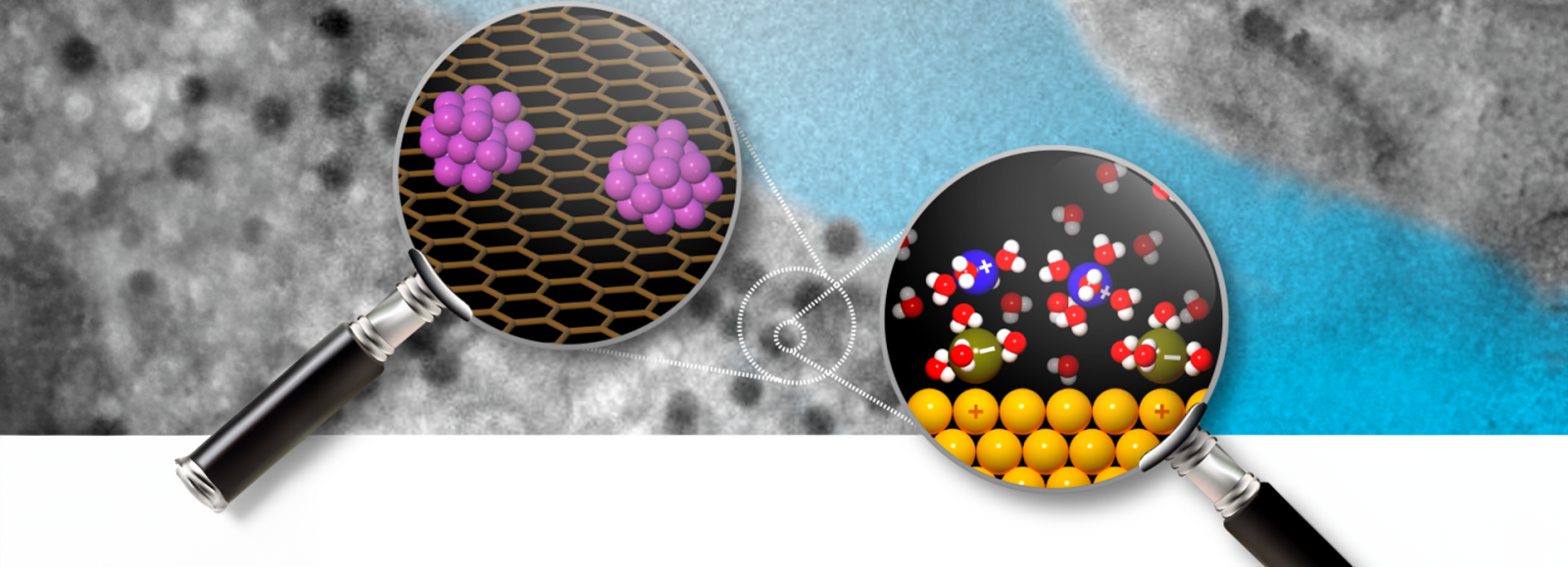
Bringing together chemists and physicists to thoroughly investigate how electrochemical processes work on the smallest scale. That is the goal of the new Advanced Nano-electrochemistry Institute of the Netherlands, or ANION for short. The consortium receives a Gravitation funding of 23.6 million euros for this purpose. Professor Petra de Jongh from Utrecht University is one of the co-applicants.
“Ultimately, our research contributes to more efficient devices for the energy transition,” says Professor Marc Koper from Leiden. “But that is not our primary goal. We simply want to better understand how the electrochemical processes necessary for that work.” Not that the application is unimportant, on the contrary, says Professor Jan van Ruitenbeek. “But there has been a lot of research into that already, almost all of the research is about applied work. In that, scientists encounter all sorts of questions that remain unanswered. We specifically needed a consortium that would address all those questions about electrochemical processes in detail. Without being too distracted by the application.”
Nanostructures: the secret behind an efficient process
There are still a lot of unsolved mysteries in electrochemistry. The ANION scientists will investigate the processes that are important for batteries, electrolysers, and fuel cells. “All these devices undergo very similar reactions,” says Koper. “The reactions take place at the interface of an electrode and an electrolyte: a medium, often a saline solution, in which the electrode is located.”
To get the most out of the reaction, that interface must be as large as possible. Koper: “We do this by creating a structure on the electrode at the nanoscale: we give the surface super tiny peaks and valleys. But we still don’t know exactly what the influence of those nanostructures is on the behaviour at the interface. If we understand that better, we might be able to change the nanostructuring in a more efficient way. That’s what we want to find out.”
Rewriting the electrochemistry textbooks
Perhaps this new fundamental knowledge will lead to completely new concepts, hopes Professor Petra de Jongh. ‘We are mainly optimising the known processes now. But maybe we will show that we need to start thinking about batteries and fuel cells in a completely different way. A revolution, instead of optimisation. Then we have to rewrite the electrochemistry textbooks!” “We don’t know where this will take us,” adds Professor Moniek Tromp from the University of Groningen. “That’s exciting, but also a challenge.”
The electron microscope in Utrecht allows us to see live what is happening at the interface
Professor Petra de Jongh
Physics and chemistry united
To achieve that, the right physicists and chemists need to come together. “And that’s exactly why we brought these six partners together,” says Koper. “Not only because of their different expertise,” adds De Jongh. “But also because of the advanced techniques we want to develop further. They are essential to understand everything. Think of the scattering of X-rays (University of Groningen), or the electron microscope in Utrecht that allows us to see live what is happening at that interface.”
Contributions Utrecht University
From Utrecht University, chemists and physicists from the Debye Institute are involved in the ANION project. Their contribution falls into two main components. First, they will fundamentally investigate what happens at the solid-liquid interface in the (nano)porous materials used for electrochemical processes. Second, they will use highly advanced electron microscopy to visualise these processes.
Perseverance and collaboration: the path to success
Obtaining the Gravity subsidy was hard work. Koper: “This was the third time we submitted our proposal. It was really blood, sweat, and tears.” De Jongh: “That shows how much we wanted it. In the end, we almost locked ourselves in to work and discuss together.” “That has been very important,” agrees Tromp. “A lot of sitting together and talking. And persevering. Because we really wanted it and found it important, we succeeded in the end.”
